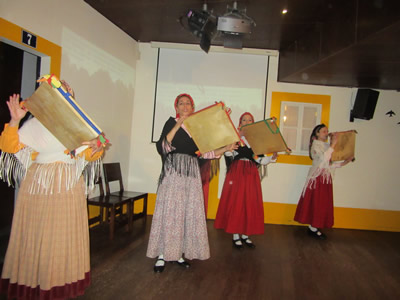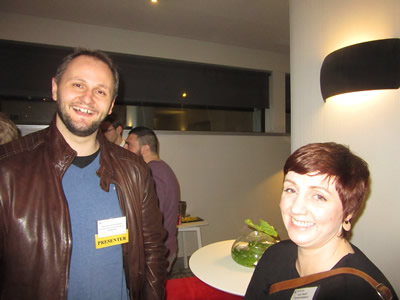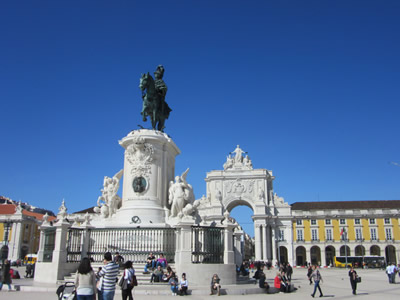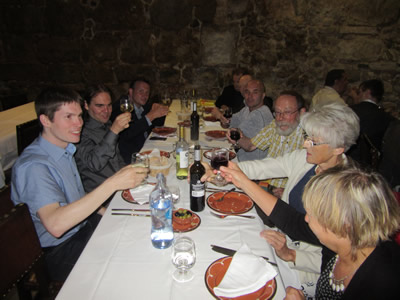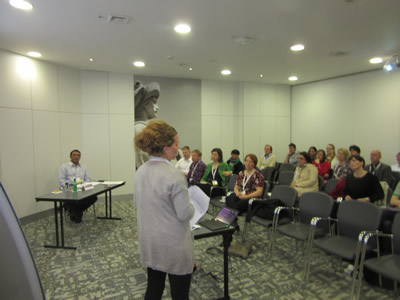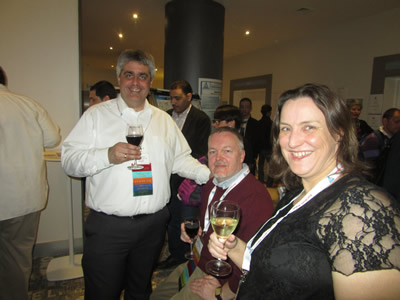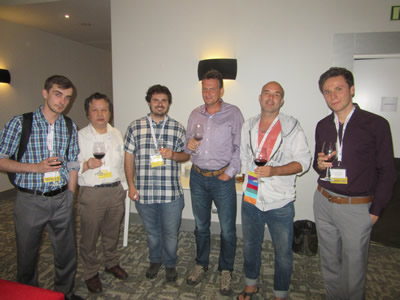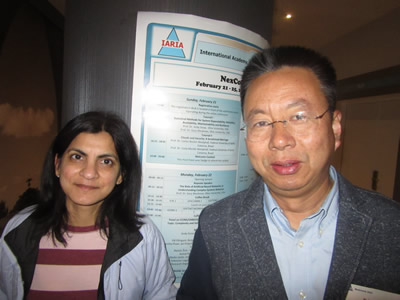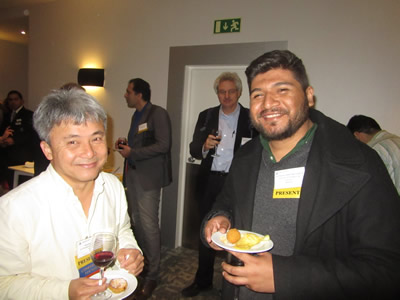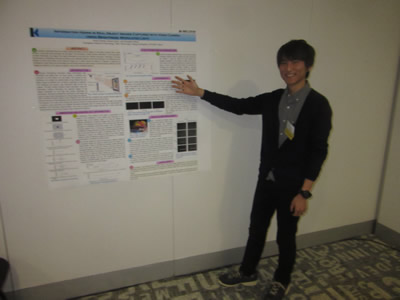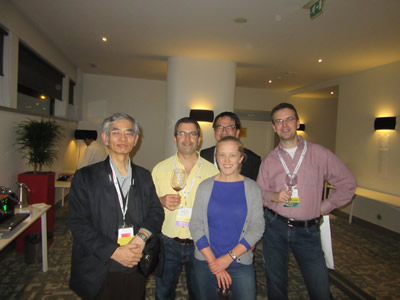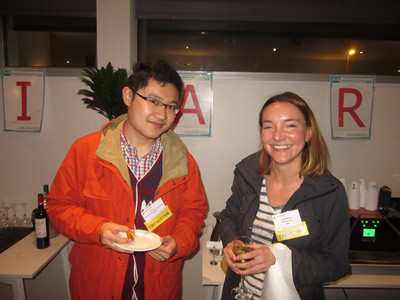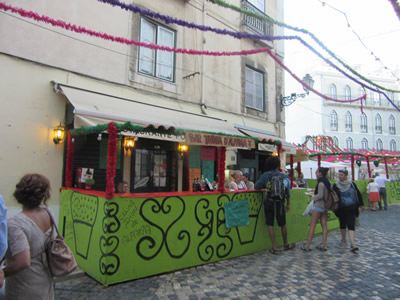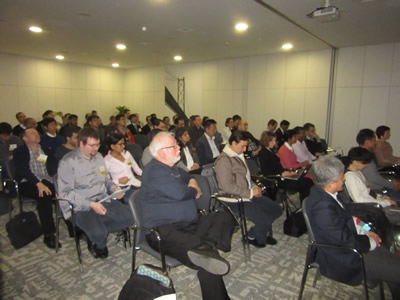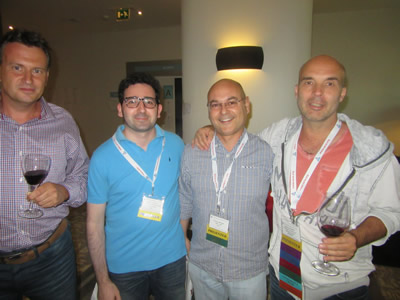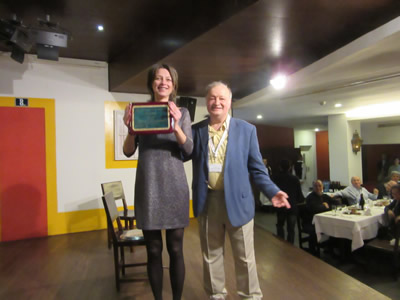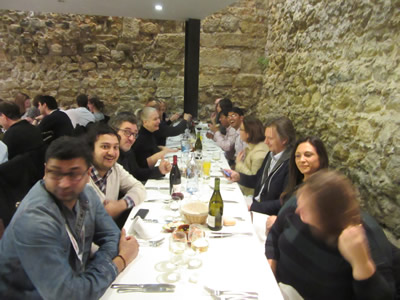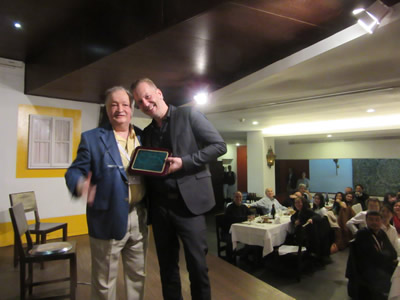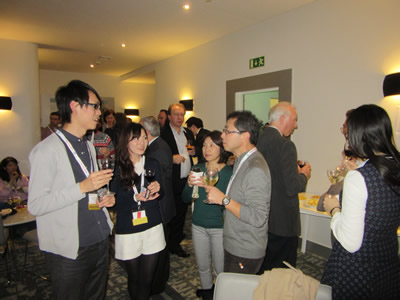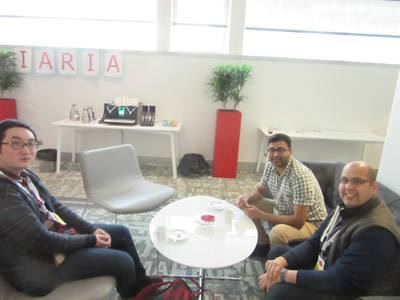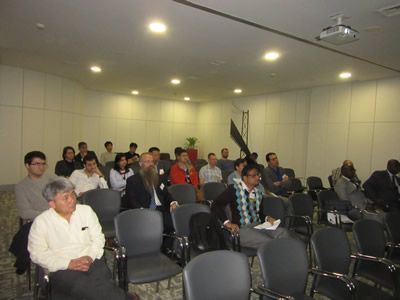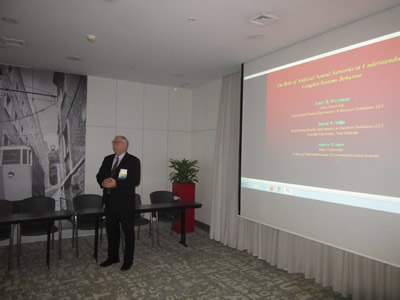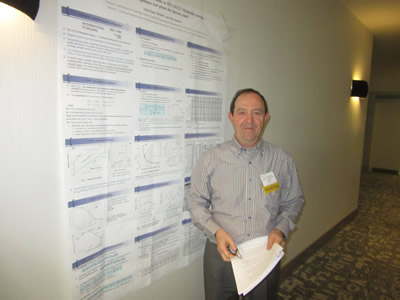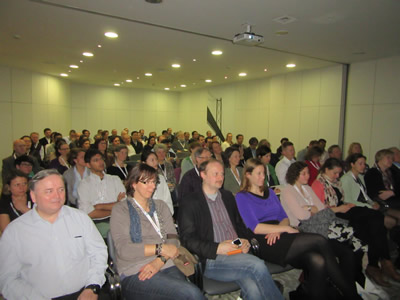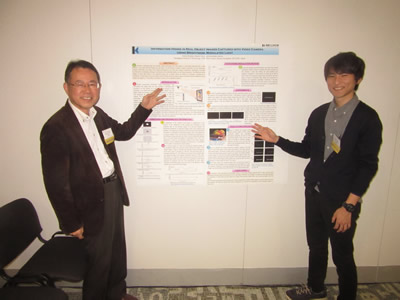ENERGY 2025 - The Fifteenth International Conference on Smart Grids, Green Communications and IT Energy-aware Technologies
March 09, 2025 - March 13, 2025
ENERGY 2025
Onsite and Online Options: In order to accommodate various situations, we are offering the option for either physical presence or virtual participation (pdf slides or pre-recorded videos).
ISSN: 2308-412X
ISBN: 978-1-68558-242-5
ENERGY 2025 is colocated with the following events as part of InfoSys 2025 Congress:
- ICNS 2025, The Twenty-First International Conference on Networking and Services
- ICAS 2025, The Twenty-First International Conference on Autonomic and Autonomous Systems
- ENERGY 2025, The Fifteenth International Conference on Smart Grids, Green Communications and IT Energy-aware Technologies
- WEB 2025, The Thirteenth International Conference on Building and Exploring Web Based Environments
- DBKDA 2025, The Seventeenth International Conference on Advances in Databases, Knowledge, and Data Applications
- SIGNAL 2025, The Tenth International Conference on Advances in Signal, Image and Video Processing
- BIOTECHNO 2025, The Seventeenth International Conference on Bioinformatics, Biocomputational Systems and Biotechnologies
- AIHealth 2025, The Second International Conference on AI-Health
ENERGY 2025 Steering Committee
|
 |
Eric MSP Veith
Carl von Ossietzky University, Oldenburg
Germany
|
|
 |
Michael Negnevitsky
University of Tasmania
Australia
|
|
 |
Dragan Obradovic
Siemens - Corporate Technology, Munich
Germany
|
|
 |
Vivian Sultan
California State University Los Angeles
USA
|
|
 |
Mark Apperley
University of Waikato
New Zealand
|
|
 |
Steffen Fries
Siemens
Germany
|
|
 |
Philip Odonkor
Stevens Institute of Technology
USA
|
|
|
|
|
 |
Eric MSP Veith
Carl von Ossietzky University, Oldenburg
Germany
|
|
 |
Michael Negnevitsky
University of Tasmania
Australia
|
|
 |
Dragan Obradovic
Siemens - Corporate Technology, Munich
Germany
|
|
 |
Vivian Sultan
California State University Los Angeles
USA
|
|
 |
Mark Apperley
University of Waikato
New Zealand
|
|
 |
Steffen Fries
Siemens
Germany
|
|
 |
Philip Odonkor
Stevens Institute of Technology
USA
|
ENERGY 2025 conference tracks:
Trends in energy fields
Redundancy of conventional energy measurements; Visualization for time power varying data; Power transient stability margins; Disturbance propagation in power systems; Short-term electrical load prediction; Monitoring residential settings; Solar and wind data analytics; Smart batteries; Controlled charging for e-mobility; Home energy predictions; Vehicle-to-grid scheduling; Electricity pricing models; Energy cluster formation; Green building energy analytics; Active power management; Pervasive energy services; Consumer behavior models; Energy saving; Appliance monitoring; User’s cognitive load; Energy consumption models for wearable/implantable devices; Microgrid and smartgrid management; Pricing for energy shared storage; Energy-efficient datacenters; Sustainable data centers; Emerging power markets; Energy-aware cooling and heating models; Flexible loads with dependencies; Electricity accessibility; Energy-efficient transportation; Solar-powered vehicles/drones; Plug-in hybrid vehicles; Shared energy models; Rechargeable energy-storage devices; Residential and industrial electrical loads
Fundamentals in Smart Grids
Architectures for Smart Grids; Smart Grids Modeling; Middleware for Smart Grids; Energy-efficient communication for Smart Grid infrastructures; Smart Grid Specific Protocols (DNP3, ICCP); Scalable infrastructures for Smart Grids; Service-oriented architectures for Smart Grids; Standards for Smart Grids; Implementation and projects on Smart Grids; Innovations on Smart Grids
Green communications
Energy-efficient communication protocols and power management; Green communications (energy efficient modulation, coding, resource allocation); Optimization of energy-efficient protocols/algorithms; Cross-layer optimization techniques for efficient energy consumption; Energy-efficient scheduling algorithms; Voltage and frequency scaled networks protocols; Energy-efficient transmission technologies; Energy-efficient protocols/algorithms in physical and IP layers; Energy-efficient radio resource management and routing; Hardware energy-efficiency systems; Virtualization techniques for energy efficiency; Simulation/modeling tools for energy efficient solutions;
Green computation
Energy-efficient service provisioning; Energy-efficient networking; Technology as Green Enablers (Grid, Cloud, Data Centers, Virtualization); Energy-efficient methodologies for infrastructure; Cooling/heating efficient energy; Power distribution; Green service life cycle;
Energy efficiency planning
Green performance metrics; Energy and performance profiling; Energy consumption and energy efficiency analysis; Energy demand prediction for appliances in industrial and home environments; Green certificates; Green maturity models
Energy-aware vehicular technologies
Alternative vehicular energy; Hybrid car energy and new battery technologies; Smart charging infrastructure; New forms of energy storage; Integration of electric vehicles and battery technology; Monitoring and sense-and-control of charging; Energy-aware vehicular sensor networks; Pricing models for charging stations, roaming across territories; Systems and computing for electric vehicle; Car energy optimization; Pricing models for charging stations
Smart Grids technologies
Sensors for Smart Grids; Wireless communications and networks for the Smart Grid last mile; Transport layer mechanisms for Smart Grids; IP interoperability in the Smart Grid; Multicast and secure multicast for the Smart Grids; Intelligent electronic devices (IED) for Smart Grids; Precision time synchronization protocols for the Smart Grids
Smart Grids Transmission Infrastructure
High Voltage DC (HVDC); Flexible AC Transmission Systems (FACTS); Automatic Correction Substations; Phasor Measurement Units (PMU); Optical Sensors (OS)
Smart Grids management and control
AMI (Advanced Metering Infrastructure); QoS, latency and reliability in Smart Grids; Security (including wireless, wire-line, broadband over power lines) in Smart Grids; Data aggregation, privacy considerations, and network data anonymization; Mobility issues in Smart Grids; Demand - response with dynamic pricing on a real-time in Smart Grids; Intelligent status monitoring in Smart Grids; Fault tolerance and disaster recovery in Smart Grids; Load balancing in Smart Grids; Dynamic discovery in Smart Grids
Software for Smart Grids
Management software for Smart Grids; End-User software application for Smart-grids; Firmware for Smart devices; Smart Grid modeling applications;
Smart Grids applications
Geographic Information Systems (GIS); Energy Management Systems (EMS); Demand Response Control; Meter Data Management System (MDMS); Home Area Networking (HAN) technologies with smart meters; Wind energy integration in Smart Grids; Disseminating power grid status information in Smart Grids; Solar, wind and energy storage integration in Smart Grids; Business issues for Smart Grids; Resilient operations against physical and cyber attacks, and natural disasters; Power quality operations in a digital economy; Anticipation and responses to system disturbances in a self-healing manner applications
Smart Grids and social infrastructure challenges
Utilities and transportation assets; Smart Grid efficiency, security and reliability; Smart Grids and renewable technologies; Enabling active participation by consumers; Accommodate all generation and storage options; Enable new products, services, and markets; Optimize asset utilization and operating efficiency; Legislation on Smart Grid
Advanced IT energy-aware technologies
Communications, sensors, wireless, mobility; Integration of consumer with utility's infrastructure; Automation, including billing and monitoring (smart meter integration); User interfaces (e.g., personal mobile devices); Appliance integration of smart appliances (communications interfaces, data formats); Integration of customer perception and response; Integration of solar technologies; Integration of wind mill technologies; Energy storage integration - battery, hydro, mechanical; Renewable energy - energy source integration models; Sensors use for energy management
Challenges in Smart Grids and IT-energy aware technologies
Scaling up; Cyber-infrastructure and cyber-security - technologies, models; Open-systems wireless and communications interface software; Security of information technology; Governments and corporation visions; Social perception and support; Standardizing approach
Deadlines:
Submission | Nov 22, 2024 |
Notification | Jan 06, 2025 |
Registration | Jan 19, 2025 |
Camera ready | Feb 02, 2025 |
Deadlines differ for special tracks. Please consult the conference home page for special tracks Call for Papers (if any).

